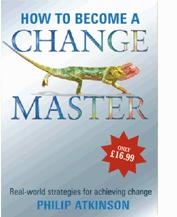
Forget any ideas of merging cultures. Merging or integrating cultures ends up in confusion and ambiguity. The resulting averaging process would create a cocktail of cultures, which would confuse all parties.
As it is required to consider strongly the dominant aspects of each corporate culture, it is worthy to note that most cultures have evolved more by accident than design. We do find that many organisations have been shaped by times of intense control in creating a specific culture to deal with a crisis or an opportunity, and periods of more of less slack or non-existent influence when the organisation has drifted.
Every CEO and senior person influences the culture, and not always in a good way. What you can be sure of when you look at a culture and assess its relative strengths and limitations, is that you need a rigorous and robust approach
Robust & Rigorous Model
A variety of tools including interviewing, focus groups, and questionnaires to assess the relative health of merging the businesses are applied. These should be designed around a unique approach and a robust model for change.
The design of the initial diagnosis is important. Consider working in a cross border deal. As well as studying ownership, control and organisational culture, the context of the cross-border partnership and the transactions and markets, that will be focused upon are critical in supporting a correct diagnosis.
Cross Border Deals
Consider an example of working in Europe with a German and a Swedish business. The National cultures have similarities and major differences – of which these consequences have to be analysed, especially when the key markets for growth because of the acquisition (for illustration) will be in Southern and Eastern Europe. You will note, there is no more complexity here than in most businesses. Is this an impossible merger? No, it just will require analysis that is more detailed and rigorous integration plans.
UK IT Solutions
Another comparison is a British IT solutions provider with strong ambitions to form joint ventures in Germany and Austria to fill a strong market demand will have to assess their relative chances of success. Because they undertook Soft Due Diligence of several businesses they now understand that they have to create a strong permanent presence in Germany before they can form any alliances. Being aware of the Germanic culture, that company will site an office in the heart of the major city that services their key market – in this case Stuttgart.
Political & Economic Context
Consider several businesses in an African state of such as Nigeria. One would have to take account of the National culture, its religious and political heritage. It would also be wise to consider political conflicts that have arisen between the three key tribal groups and contemplate also how this will affect your business if you are going to trade in specific geographies. For instance, in some regions the dominant tribal grouping may exert more influence in some territories than others, and this could impact on human resource, supply and logistics issues.
We can see how one model may be suited for Sweden but would clearly be inappropriate for work in Africa. It is important to work extensively to understand the political and economic context in which the deal is has to be finalised in order to avoid the potential of business failure.
Partnering with Dealmakers
It is clear that one approach does not fit all, and the approach to cross border work is unique and tailored with precision. This is because those undertaking the research to work very closely with the partners of the businesses and to confront potential problems early on. Only by doing this, can we develop strategies to resolve key issues for immediate action.
What is important is that there should be no surprises along the tortuous route of business expansion due to merger or just organic growth.
Corporate Culture
In some cases, nationality can have a profound effect on post acquisition integration because it may favour one particular style of management akin to the relative culture of a country or a region, but it is also important to consider corporate culture in different functions, territories and specific facilities.
Nobody has time to run around businesses handing out questionnaires, then assessing, and ranking these by site and function. Soft Due Diligence is not a corporate climate survey to assess the relative state of teamwork, communication and the role of training – rather it is strategic, not tactical, and focuses on how to resolve issues that will arise when the businesses come together to form the new larger business entity.
Speed & Confidence in the Approach
Speed is of the essence, and rapid improvement and implementation must be the key strength. When one understands the process of change in this context, one can anticipate problems and address them before they become a major barrier to integration.
Of course, one has to realise the considerations of the strong Investor groups and institutions as well as the behaviour, both actual and predicted, of the existing and the new management team.
“Sensitive” and “incisive” are two words, which come to mind in this study. The study is a quick and reliable series of storyboards and scenarios that capture the spirit, the opportunities, and the scope for growth are identified and presented.
Ultimately, the data generated from Soft Due diligence, and the decisions that flow from these studies are the direct input for post acquisition strategies for speedy integration.
 RSS Feed
RSS Feed

